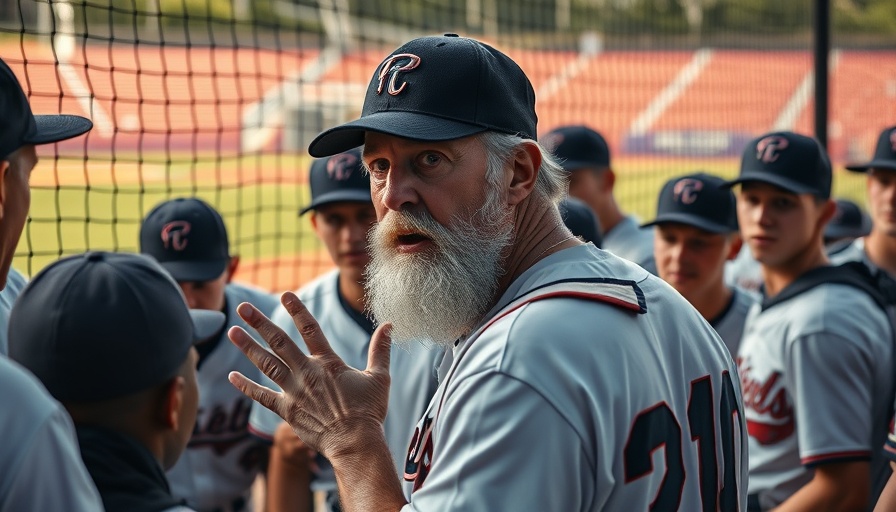
The Role of Sportsmanship in Modern Baseball
In an era where the intensity of competition often spills over into the stands, the recent confrontation between Diamondbacks manager Torey Lovullo and a heckling fan highlights the importance of sportsmanship. The incident unfolded as Ketel Marte, an emotional player due to personal loss, faced harsh ridicule from a White Sox fan. Lovullo's passionate defense of his player sends a strong message about respect in sports—both for the athletes who entertain us and the tragedies they endure.
Understanding Player Vulnerability
Players like Marte are not immune to the emotional toll of their experiences, especially when it comes to loss. Marte's mother tragically passed away in a car accident in 2017, a fact that makes the fan's comments even more callous and unacceptable. This incident serves as a stark reminder that behind every athlete's facade of toughness lies a human being with real feelings and struggles. Lovullo's intervention resonates with anyone who has ever felt the sting of harsh words directed at them in a vulnerable moment.
Societal Reflections: What’s Acceptable in the Stands?
As spectators, we often question what is acceptable behavior at sporting events. The normalization of heckling has led to blurred lines regarding respect for players. The response from both Lovullo and Marte’s teammates, including Geraldo Perdomo’s plea for action against the fan, underscores that tolerance for toxicity should not be part of the sports culture. These athletes are relatable, often becoming icons not just for their skills but for their human experiences.
A Lesson in Accountability for Fans
The swift action taken by White Sox security and the MLB to ban the heckler indefinitely is a critical step in holding fans accountable for their actions. It’s vital that event organizers and teams ensure a safe environment where players can focus on their game—free from personal attacks that cross the line of acceptable banter. This incident may serve as a blueprint for how sports leagues approach fan behavior in the future.
What This Means for the Future of Fan-Athlete Interactions
The Lovullo confrontation sheds light on the need for a cultural shift in fans’ attitudes toward players. As we move forward, it's essential to foster an environment where respect reigns supreme—where heckling is relegated to playful banter and never veers into personal territory. Fans should advocate for a culture of positivity rather than destruction, changing the narrative around the relationship between athletes and their supporters.
Conclusion: The Power of Support in Sports
This incident ultimately emphasizes the power of support, both from teammates and coaches. It reminds us that sportsmanship is not just reserved for on-field play; it extends into arenas, ballparks, and spectator zones. As fans, the responsibility lies with us to uplift athletes, providing an atmosphere of camaraderie and respect rather than hostility.
Let’s celebrate our teams through appreciation and support of the players’ journeys, recognizing them not only as athletes but as individuals with stories that deserve our respect. Call on leagues, teams, and fellow fans to discourage harmful behavior at matches—because it shouldn’t take a confrontation to remind us that compassion should always come first.
 Add Row
Add Row  Add
Add 




Write A Comment